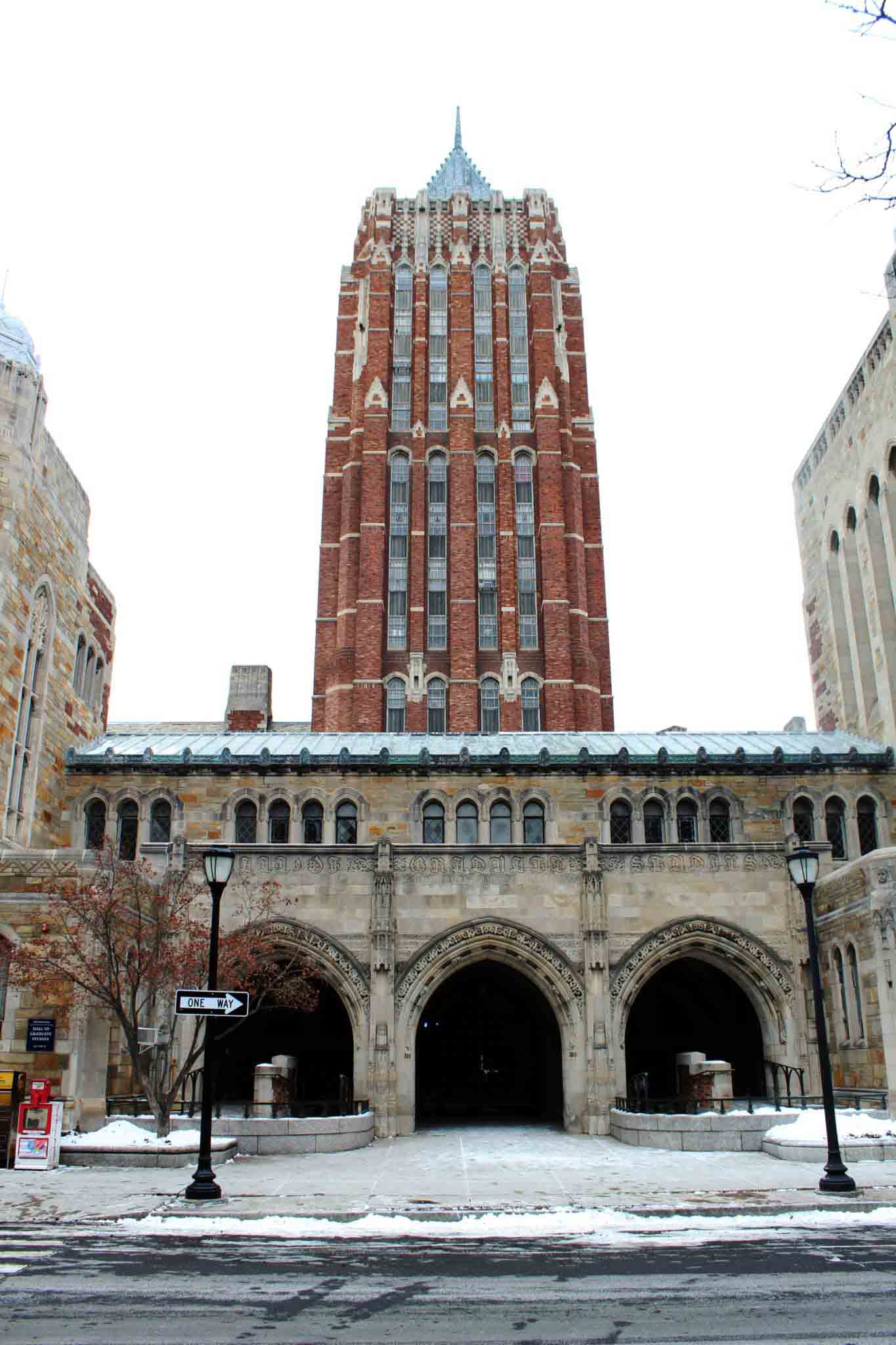
Alex Schmeling
Dozens of humanities students in their final year at the Graduate School of Arts and Sciences will hand in their dissertations on March 15, completing their studies at Yale. But as the number of desirable jobs in academia dwindles, many of those students are scrambling to secure work before they leave Yale.
Students looking to enter academia typically search for faculty jobs with a preference for tenure-track positions, which offer the possibility of future job stability. But a variety of factors has made these positions more difficult to come by. In the humanities, the increasing number of Ph.D.’s produced by American universities combined with the decreasing number of tenure-track openings and the simultaneous increase in adjunct professorships has created a stifled job market.
“What we’re seeing is that students on graduation are not getting tenure-track jobs,” said Pamela Schirmeister ’80 GRD ’88 — now the senior associate dean and dean of strategic initiatives at the Graduate School of Arts and Sciences. “They’re getting a one-year job here. They’re getting a postdoc. Postdocs in the humanities are becoming much more common, and it is taking them two, three, four years to land a tenure-track job – if at all.”
According to the Humanities Indicator Index, from 2009 to 2014, the proportion of humanities Ph.D’s who finished their degrees with a firm job commitment in academic or other sectors dropped by 19 percent. While STEM fields also saw a decline in new Ph.D.’s with firm job commitments, the percentage decrease ranged from only two to 12 percent for different STEM fields over the same time period.
According to David Kastan, a professor and job placement officer for the English Department, Yale and other universities have decreased the number of admits into the Graduate School in recent years, but universities are still awarding more humanities Ph.D.’s than in the past. According to the American Academy of Arts and Sciences, in 2015, 5,891 humanities Ph.D.’s graduated in the United States – the largest recorded number since 1987. The number of new Ph.D.’s in the humanities has increased almost every year from 2007 to 2015.
Still, Kastan said, the majority of Yale humanities Ph.D students searching for jobs in academia ultimately secure such jobs, although not all are tenure-track professorships.
“Last year about 60 percent of the students actively looking for jobs received either tenure-track offers, one or two year visiting professorships, or multi-year post-docs,” Kastan said. “This year the process is still ongoing but the percentages seem about the same.”
The American Academy of Arts and Sciences reports that the numbers of jobs in the fields of religion and English have fallen 11 percent and 7 percent, respectively, in the span of a year.
According to Paul Fry, an English professor who has taught at Yale since 1971, decreasing funding for the humanities from state governments has contributed to the shortage of academic positions.
“Beyond these pragmatic factors, those same boards and legislators suppose the humanities to be a hotbed of radicalism and subversion and quite consciously punish it at the college level by withholding funds for hiring,” Fry said. “But after all, just to give everybody a pass, there aren’t many funds for anything non-profit these days.”
Wendell Adjetey GRAD ’18, in his 6th and “hopefully” final year in the history department, says he has been looking for academic and nonacademic jobs. In many instances, nonacademic sectors are easier to find work in, he said, while finding an academic job is a “full-time job in itself.”
“It’s been very time-consuming, demanding, exhausting, humbling, and it’s hard to appreciate how difficult the academic labor market is if one hasn’t dipped their toe in the market,” Adjetey said.
Still, other students have found success in the academic job market.
Cindy Ewing GRAD ’18 said that she managed to secure a full-time tenure-track position beginning in July as as assistant professor of international history at the University of Toronto.
“It’s just extremely difficult to get a position, so I feel extremely, extremely grateful,” Ewing said. “I certainly didn’t expect that it would happen — that I would be able to say upon graduation that I had a job.”
The earlier dissertation submission date already passed on Dec. 15.
Carly Wanna | carly.wanna@yale.edu







